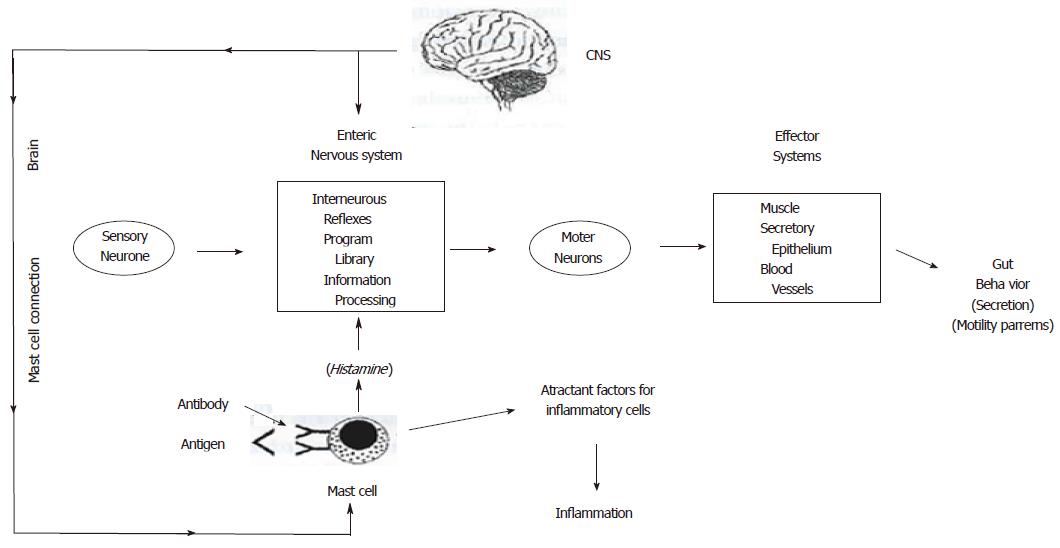Copyright
©The Author(s) 1996.
World J Gastroenterol. Sep 15, 1996; 2(Suppl1): 22-25
Published online Sep 15, 1996. doi: 10.3748/wjg.v2.iSuppl1.22
Published online Sep 15, 1996. doi: 10.3748/wjg.v2.iSuppl1.22
Figure 1 Neurogastroenterology is the subspeciality of gastroenterology that studies the brain, the enteric nervous system, neuro-immune communication and behavior of the digestive effector systems.
The heuristic model for the enteric nervous system is an independent integrative nervous system. It processes information derived from sensory neurons and immune (mast) cells. The interneuronal processing circuits contain reflex micro circuits and a library of gut behavioral programs. Interneuronal circuits determine the outflow of information in motor neurons to the intestinal effector systems. Coordinated activity of the effectors determines moment-to-moment behavior of the gut. Mast cells detect threatening antigens and alert the enteric nervous system to their presence. Mast cells signal the enteric nervous system by releasing paracrine mediators. The central nervous system signals the enteric nervous system through a brain to mast cell connection as well as direct neural pathways.
- Citation: Wood J. Enteric nervous system in pathogenesis of gastrointestinal motility disorders. World J Gastroenterol 1996; 2(Suppl1): 22-25
- URL: https://www.wjgnet.com/1007-9327/full/v2/iSuppl1/22.htm
- DOI: https://dx.doi.org/10.3748/wjg.v2.iSuppl1.22









